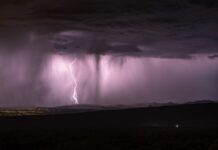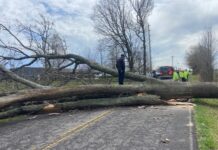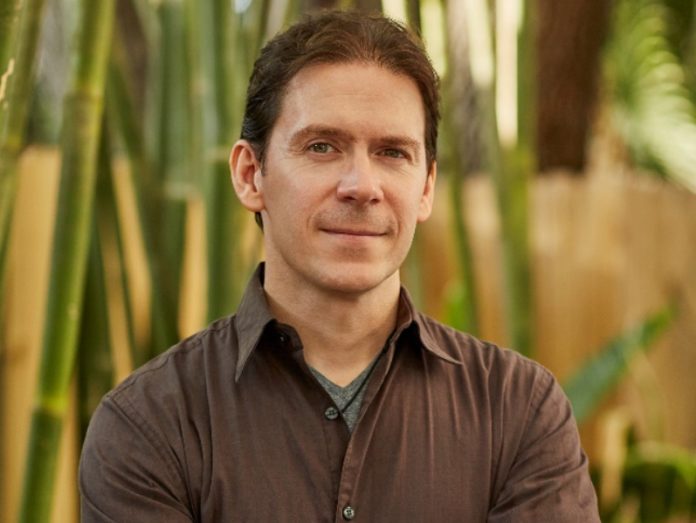We recently sat down with Greg Gerdeman, Ph.D., Chief Scientist and Cannabinologist at Tennessee Farmaceuticals to discuss Delta-8, a psychoactive cannabinoid found in the cannabis plant that’s been receiving a lot of attention lately.
Gerdeman, who goes by “Dr. G,” recently spoke about Delta-8 on a National Cannabis Industry Association (NCIA) panel on April 28. We asked him to share some important information about this chemical compound and its effects and implications for readers here.
WS: Dr. G, what is Delta-8?
Dr. G: Delta-8 THC is like Delta-9, the chemical in cannabis that gets you “high,” but there’s a very small structural difference. There’s a double bond in Delta-9, and if that double bond moves just a little bit, right next door in the structure of the molecule, now you’ve got Delta-8 instead.
The marijuana plant makes Delta-9. Delta-8 THC can be found in the plant in trace amounts, even in low-THC hemp, but it’s unclear the process by which that happens. Delta-8 has never been pursued much as something you can get from cannabis because it’s hardly there. Now scientists are developing it.
The history goes back to the 1960s, when scientists discovered that CBD can be converted to THC… a fact rediscovered by the growing hemp industry, driven mostly by the appeal of CBD. Many companies extract CBD-rich oils from the hemp plant, and purify it into what is called CBD isolate, sold as a powder ingredient. So much of this isolate was created in 2019 that the price of pure CBD dropped dramatically. This incentivized some people to find a better way to sell it. So, some entrepreneurial chemists started buying CBD isolate and converting it into Delta-8.
Is that even legal? Well, the 2018 Farm Bill declared that any cannabis containing under 0.3% Delta-9 THC is classified as “hemp” and no longer a controlled substance. Extracts and derivatives thereof are also under the same classification.
And, there is the loophole. The Farm Bill explicitly mentions Delta-9, but it doesn’t say anything about Delta-8, a form of THC that is about 70-80% as psychoactive as Delta-9. “THC light,” some people call it.
So, to summarize, there are several influential factors that have given rise to the popular lab development of Delta-8: a growing CBD industry, a dropping price of CBD, and change in federal law. Many companies are taking advantage of the opportunity by purchasing affordable CBD and chemically manipulating it to create higher profit margins on a product that makes people high.
In short, Delta-8 is a synthetic drug. You can presently go into any strip mall vape shop and find this drug. Some manufacturers even sell hemp flowers sprayed with Delta-8, calling it “delta-8 flower.” Consumers think it’s the same as Delta-9 (traditional marijuana with THC), but legal. It is not. It has a serious truth-in-advertising issue.
WS: So, Delta-8 is not legal?
Dr. G: Correct. In my view, it is unequivocally illegal. Right or wrong, delta-8 is listed as a Schedule I substance. The legal interpretation frequently referenced is a clause in the Farm Bill not at all intended to legalize something that gets you high. A chemist could theoretically make PCP out of CBD as a starting material, but that wouldn’t make it legal.
WS: Is Delta-8 safe?
Dr. G: I think people should realize that the “THC-light” narrative is not necessarily true. It’s likely just a matter of dosage, and with the products being sold, it is easy to overconsume. You don’t necessarily have a decreased risk of the adverse symptoms associated with THC, such as panic attack, anxiety, etc. To be clear, neither form of THC is life threatening, but there are people going into Emergency Departments in Tennessee because of the intensity and distress they feel after taking too much Delta-8.
Potency can vary from lab to lab, and most of the products actually have more delta-9 than is on the label. Most concerning, Delta-8 products suffer from quality control and contaminant issues, largely due to lack of regulation. Delta-8 production involves turning one molecule into another, which creates toxic byproducts. For example, if you run the reaction too hot or with too much oxygen. For these reasons I would never recommend anyone vape a Delta-8 product as they are presently marketed. Never put chemicals into your lungs with no quality oversight.
Watch Dr. G’s Recent Discussion of Delta-8 With NCIA
More Information at Tennessee Farmaceuticals
To learn more about quality, safe CBD products, visit Tennessee Farmaceuticals, a local company that believes in developing health products from the soil up. “Heaven is under our feet as well as over our head.”
Have a question for Tennessee Farmaceuticals? Fill out the form below:































